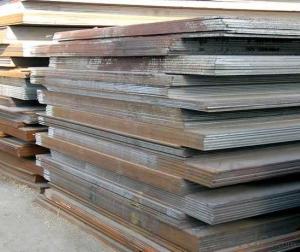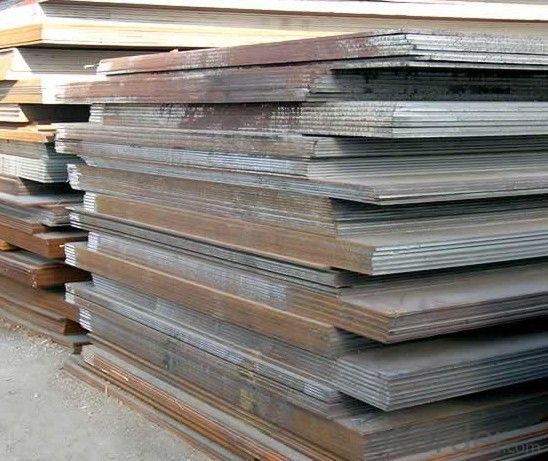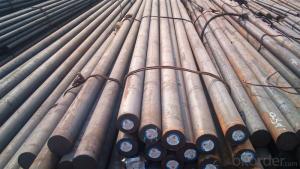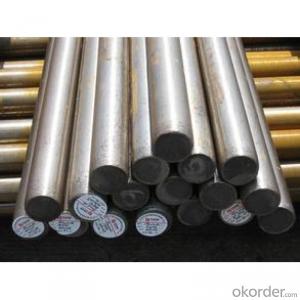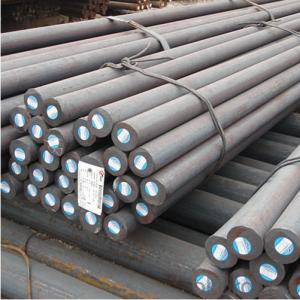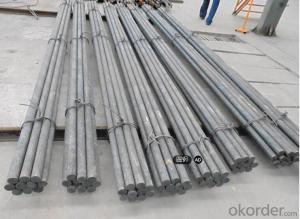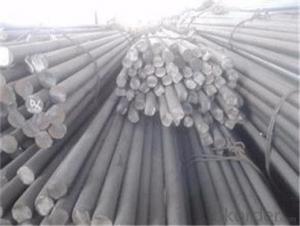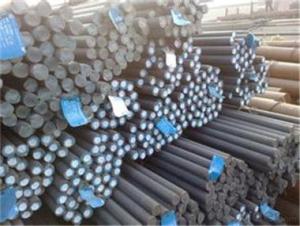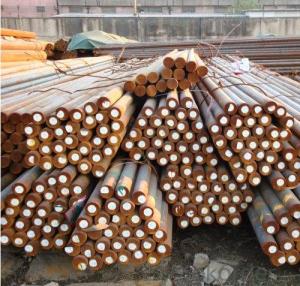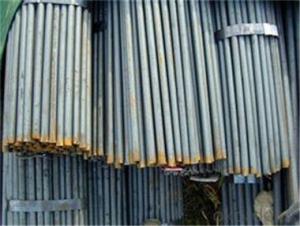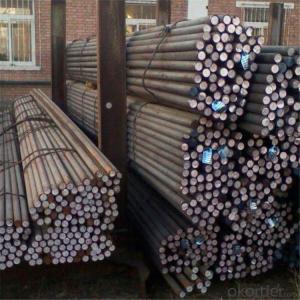AISI 1045 C45 (EN8) Steel Plate With Black/Turned/Grinded
- Loading Port:
- China main port
- Payment Terms:
- TT OR LC
- Min Order Qty:
- 25 m.t.
- Supply Capability:
- 10000 m.t./month
OKorder Service Pledge
OKorder Financial Service
You Might Also Like
Specification
Chemical composition ( %)
| C | Si | Mn | Si | Cr + Ni + Mo |
|---|---|---|---|---|
| 0,45-0,50 | ≤ 0,40 | 0,50-0,80 | 0,015-0,035 | ≤ 0,63 |
Steel properties:
Medium carbon steel to be used either as-treated (quenched and tempered) or as-annealed (normalised), depending on the level of mechanical characteristics to be reached. Suitable for surface hardening.
Applications:
Quality parts for general mechanics: hydraulic jacks, pistons, axles, pinions for gears, bearings, etc.
The details of our Steel
1. Produce Standard: as the GB, AISI, ASTM, SAE, EN, BS, DIN, JIS Industry Standard
2. Produce processes: Smelt Iron -EAF smelt Billet - ESR smelt Billet -Hot rolled or forged get the steel round bar and plate
3. Heat treatment:
Normalized / Annealed / Quenched+Tempered
4. Quality assurance:
All order we can received Third party inspection, You can let SGS, BV,.. and others test company test and inspect our products before Goods shipping.
Product show
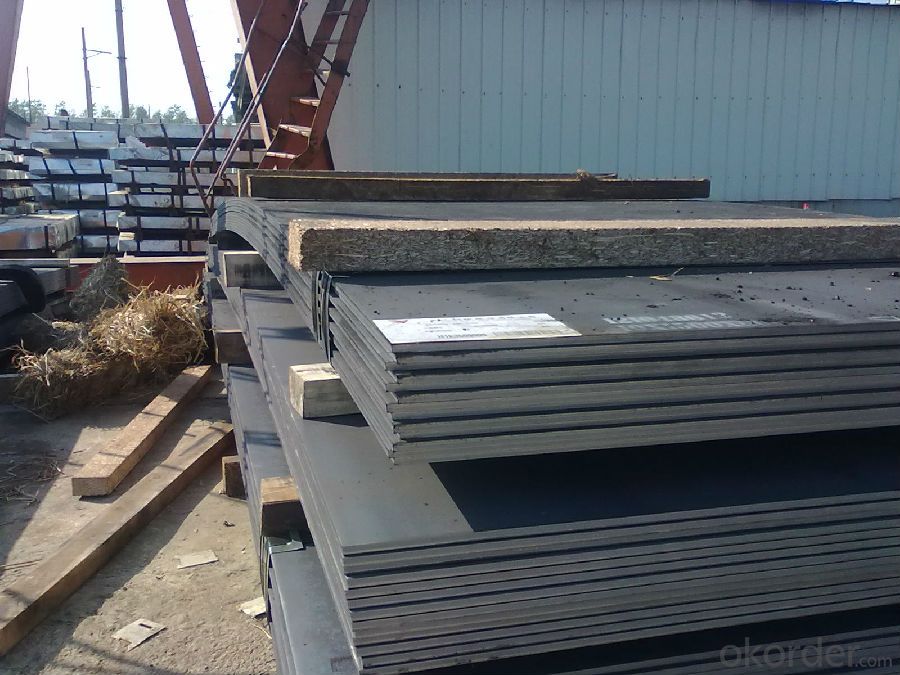
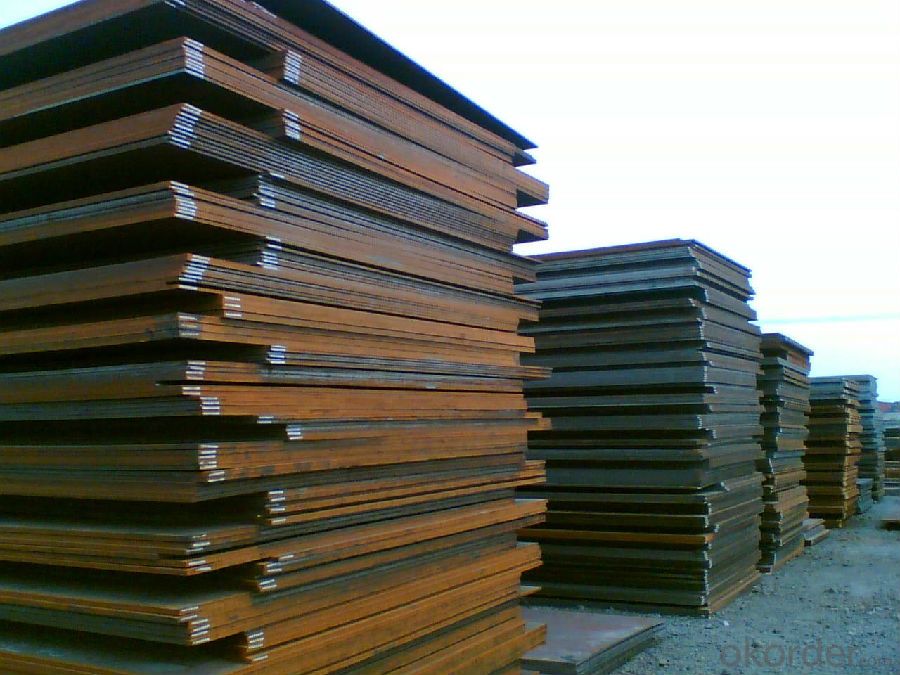
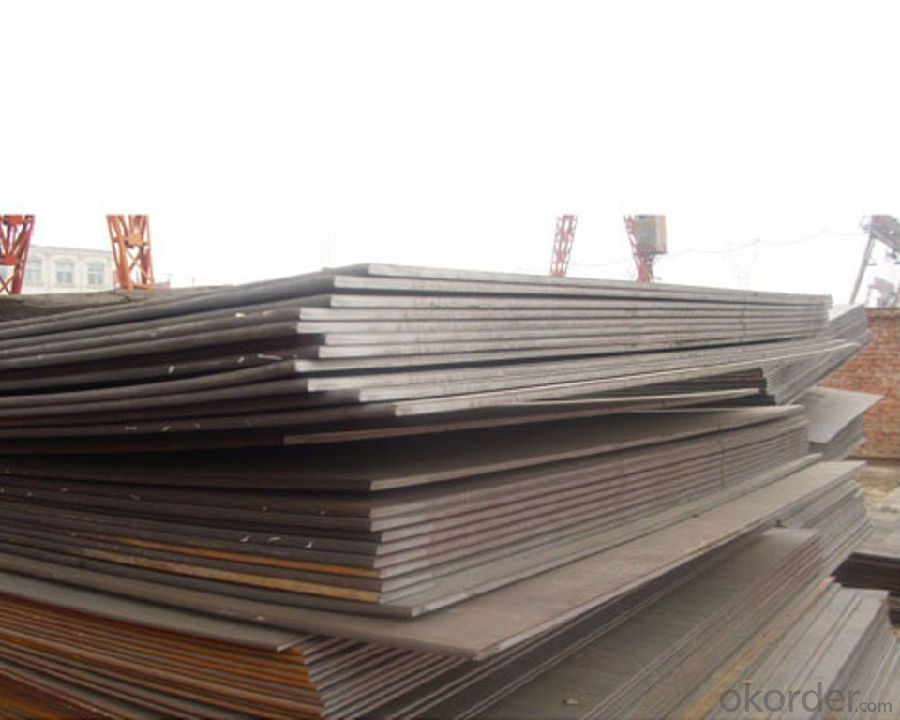
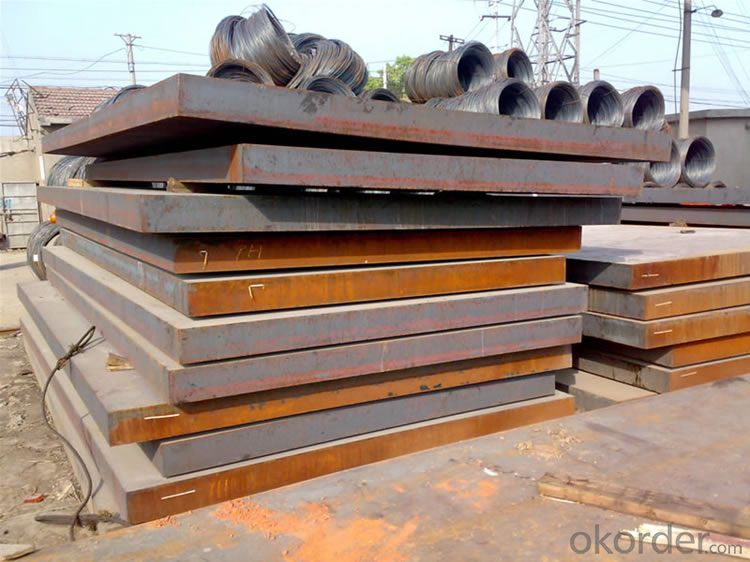
- Q: What are the applications of special steel in the food processing industry?
- Due to its unique properties and characteristics, special steel finds wide-ranging applications in the food processing industry. One significant use of special steel in this sector is for manufacturing equipment and machinery used in food processing plants. Its corrosion resistance and ability to withstand extreme temperatures make it ideal for frequent sanitization and operation under harsh conditions. Special steel is commonly employed in the production of blades, knives, and cutting tools used in food processing. Its high strength and durability enable these tools to maintain their sharpness and effectiveness even after prolonged use, ensuring efficient and precise cutting of food products. Another application of special steel in the food processing industry is for constructing storage tanks and containers. These tanks are utilized for storing and transporting various food products. The corrosion resistance and hygiene properties of special steel prevent contamination and ensure the quality and safety of the stored food. Moreover, special steel is also utilized in the construction of processing machinery, such as mixers, grinders, and extruders. Its high strength and stability enable these machines to handle the rigorous demands of food processing, ensuring smooth operation and minimizing downtime. Furthermore, special steel often finds application in the production of conveyor systems used in food processing facilities. These conveyors play a crucial role in moving food products along the processing line, and special steel's resistance to wear and tear ensures efficient and reliable operation, reducing the risk of product contamination. In conclusion, special steel plays an extensive and crucial role in the food processing industry. Its unique properties contribute significantly to the efficiency, safety, and quality of food processing operations, from equipment manufacturing to storage and processing machinery construction.
- Q: What are the different types of coatings for special steel?
- To enhance the performance and safeguard special steel against various environmental factors, a range of coatings can be applied. The following are some commonly used coatings for special steel: 1. Zinc-based coatings: These coatings, like galvanized steel, offer exceptional corrosion resistance. By acting as sacrificial barriers, the zinc layers protect the underlying steel from rusting. 2. Epoxy coatings: Renowned for their resistance to chemicals, moisture, and abrasion, epoxy coatings find extensive use in industries where steel is exposed to harsh conditions or corrosive substances. 3. Powder coatings: Providing a durable and visually appealing finish to special steel, powder coatings are applied as dry powder and cured under heat. This process forms a tough, protective layer that resists chipping, fading, and corrosion. 4. Ceramic coatings: Ceramic coatings are celebrated for their ability to withstand high temperatures and excellent thermal insulation properties. They are commonly utilized in applications involving extreme heat or rapid temperature changes. 5. Organic coatings: Acrylics and polyurethanes are examples of organic coatings that create a protective barrier against moisture, UV radiation, and chemicals. They are frequently employed in outdoor applications, such as architectural structures or automotive parts. 6. Phosphate coatings: Primarily used as pre-treatment before applying other coatings or paints, phosphate coatings enhance adhesion and corrosion resistance in subsequent layers, resulting in a more durable finish. 7. Polymer coatings: Polymer coatings exhibit exceptional resistance to abrasion, impact, and chemicals. They are often utilized in industrial settings where steel experiences heavy wear and tear. Selecting the appropriate coating for special steel is crucial, considering the specific requirements and environmental conditions it will encounter. Each type of coating possesses its own advantages and limitations, necessitating a comprehensive analysis to determine the most suitable option.
- Q: What are the challenges in heat treatment of special steel alloys?
- The challenges in heat treatment of special steel alloys primarily revolve around achieving the desired mechanical properties while maintaining the material's chemical composition and microstructure. Special steel alloys often contain a complex combination of elements, making it crucial to carefully control the heating and cooling processes to prevent undesirable phase transformations or the formation of unwanted precipitates. Additionally, the high hardenability of some special steel alloys can lead to difficulties in achieving uniform hardness throughout the material. Achieving precise temperature control, as well as managing the time and cooling rates, becomes critical in order to avoid issues such as distortion, cracking, or reduced mechanical strength. Overall, the challenges in heat treating special steel alloys lie in finding the right balance between achieving the desired properties while avoiding any detrimental effects on the material's integrity.
- Q: How does special steel perform in marine environments?
- Special steel performs exceptionally well in marine environments due to its high corrosion resistance. It is specifically designed to withstand the harsh conditions of saltwater, preventing corrosion and ensuring long-term durability. Additionally, special steel has excellent strength and toughness properties, making it suitable for various marine applications, such as shipbuilding, offshore structures, and underwater equipment.
- Q: How does special steel contribute to the construction of bridges?
- Special steel plays a crucial role in the construction of bridges by providing enhanced strength, durability, and resilience, thereby ensuring the structural integrity and safety of these vital infrastructure projects. One of the key benefits of special steel in bridge construction is its high tensile strength, which allows the material to withstand heavy loads and extreme weather conditions. This strength is particularly important in large-span bridges, where the steel must bear significant weight and resist forces such as wind, earthquakes, and traffic vibrations. Special steel also offers superior corrosion resistance, which is essential in bridges exposed to harsh environments, such as those near coastal areas where saltwater can be highly corrosive. By preventing or minimizing corrosion, the lifespan of the bridge is significantly extended, reducing maintenance and repair costs. Moreover, special steel can be fabricated to precise specifications, allowing for the creation of complex bridge designs and innovative structural solutions. This versatility enables engineers to design bridges that are not only functional but also aesthetically pleasing. In summary, special steel is a critical component in bridge construction due to its strength, durability, corrosion resistance, and versatility. Its use ensures the longevity, safety, and efficiency of bridges, ultimately benefiting the communities they serve.
- Q: How does the hardness of special steel affect its performance?
- The hardness of special steel plays a crucial role in determining its performance. The hardness of steel refers to its ability to resist indentation, scratching, or deformation during use. This property is directly related to the steel's microstructure and the amount of carbon present in it. When special steel is hardened, it undergoes a process called heat treatment, typically involving rapid cooling or quenching after being heated to high temperatures. This process alters the steel's microstructure, resulting in a harder material. The increased hardness provides several benefits to the performance of special steel. Firstly, a higher hardness level enhances the wear resistance of special steel. This is particularly important in applications where the steel is subjected to abrasive or erosive forces, such as cutting tools or machinery components. A harder steel can withstand these forces without significant wear or damage, resulting in improved longevity and reliability. Secondly, the hardness of special steel affects its strength and toughness. A harder steel generally exhibits higher strength, meaning it can withstand greater forces without permanent deformation or failure. This property is advantageous in applications where the steel is subjected to heavy loads or impacts. Additionally, a certain level of toughness is necessary to prevent brittle fractures. While high hardness can make a steel more brittle, careful heat treatment can balance the hardness and toughness, ensuring the steel remains strong and resistant to fracture. Furthermore, the hardness of special steel also affects its machinability. Hardened steel can be more challenging to machine due to its increased resistance to cutting tools. However, it offers greater dimensional stability and precision during machining operations, leading to more accurate and consistent results. In summary, the hardness of special steel significantly impacts its performance. A higher hardness level provides improved wear resistance, strength, and toughness, making it suitable for demanding applications. However, the balance between hardness and toughness needs to be carefully considered to avoid brittleness. Therefore, understanding and controlling the hardness of special steel is essential to optimize its performance in various industries.
- Q: How is special steel classified?
- Special steel is classified based on its chemical composition, mechanical properties, and intended applications. It can be categorized into various types such as carbon steel, alloy steel, stainless steel, tool steel, and high-speed steel. These classifications help determine the steel's suitability for specific industrial uses and ensure its quality and performance.
- Q: How does special steel perform in cryogenic gas environments?
- Special steel performs well in cryogenic gas environments due to its unique properties. It has excellent resistance to low temperatures and maintains its strength and toughness even at extremely cold temperatures. This makes it highly suitable for applications in cryogenic gas environments where traditional steel may become brittle or lose its strength. Additionally, special steel's resistance to corrosion and thermal expansion further enhances its performance in these extreme conditions.
- Q: What are the challenges in working with special steel?
- Working with special steel can present various challenges due to its unique properties. One major challenge is its high hardness, which makes it more difficult to machine, shape, and weld compared to regular steel. Special steel also tends to have lower thermal conductivity, making it more susceptible to heat damage during cutting or grinding processes. Additionally, special steel alloys often have strict composition requirements, meaning precise control over the manufacturing process is necessary to achieve the desired material properties. Overall, the challenges in working with special steel primarily revolve around its hardness, thermal properties, and the need for precise manufacturing techniques.
- Q: What are the main applications of special steel in the defense equipment?
- Special steel is widely used in defense equipment due to its unique properties. One of the main applications of special steel in defense is for manufacturing armor and ballistic protection, ensuring the safety of military personnel and vehicles in combat. It is also used in the production of military aircraft, submarines, and ships, providing strength, durability, and resistance to extreme conditions. Special steel is further utilized in the production of firearms and ammunition, offering high strength and reliability. Overall, the main applications of special steel in defense equipment revolve around enhancing protection, performance, and longevity in critical military applications.
Send your message to us
AISI 1045 C45 (EN8) Steel Plate With Black/Turned/Grinded
- Loading Port:
- China main port
- Payment Terms:
- TT OR LC
- Min Order Qty:
- 25 m.t.
- Supply Capability:
- 10000 m.t./month
OKorder Service Pledge
OKorder Financial Service
Similar products
Hot products
Hot Searches
Related keywords
